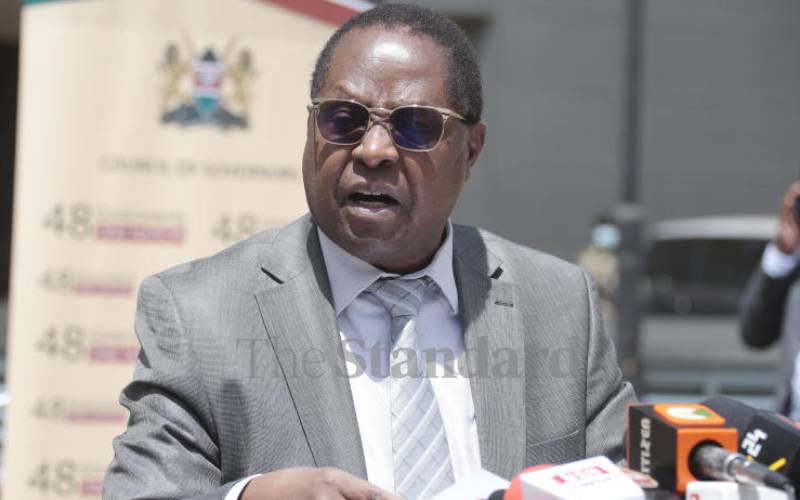×
The Standard e-Paper
Join Thousands Daily

Council of Governors (COG) Chairman Martin Wambora at COG Head Offices in Nairobi, January 5, 2022. [Boniface Okendo, Standard]
Contractors and suppliers of goods and services are staring at an extended wait for Sh103.73 billion owed to them, with nearly half of governors retiring in August and others unsure of re-election.







